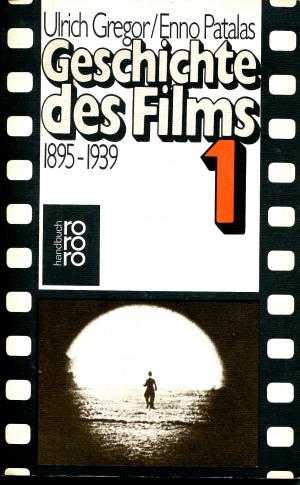
Enno Patalas
Enno Patalas, the former Director of the Munich Filmmuseum and my immediate predecessor in the job, died on August 7, 2018. As the museum’s second Director, Patalas brought international recognition to the institution with his careful reconstructions of German Expressionist classics, like Nosferatu (1922), Metropolis (1927) and The Loves of Pharaoh (1922). He was the first person in Germany to decry the deplorable condition of German films, producing new, more complete work prints from as many sources as he could find. But Patalas was first and foremost a showman, often introducing films with stories of arcane maneuvers to procure materials from various archives, even in Communist Russia, where he traded James Bond or American erotic films for a lost Murnau or Pabst. And he also created a unique archive that focused on German silents and the New German Cinema, collecting the major works of R.W. Fassbinder, Wim Wenders, Werner Herzog, Alexander Kluge, Herbert Achternbusch, Jean-Marie Straub and Danièle Huillet.
Our relationship was complicated. We first met in 1977, when Patalas organized the 12th Congrès International du Cinéma Indépendant (CICI) at the Filmmuseum, presenting an eight-day program, Three Moments of German Cinema, which covered post-WWI German silent films (especially Lubitsch), the Third Reich until 1936, and the beginnings of New German Cinema. Viewing more than 75 features and shorts, it was certainly my first deep dive into German film, influencing my own subsequent work on Karl Valentin, Max Ophüls, Piel Jutzi, and Edgar Reitz. Patalas, who had taken over the leadership of the Filmmuseum in 1973 from its founder, Rudolf Joseph, would become a legend for his complete retrospectives of Yasujiro Ozu, John Ford, Marcel Pagnol, Leo McCarey and many others. Like Henri Langlois and other first generation film archivists, Patalas was an uncompromising champion of film as art. When I began my own tenure at the Filmmusuem in 1994 with a German commercial comedy, signaling to the local Munich film industry that the Filmmuseum would now support their efforts, Enno Patalas organized a boycott of our film program.

Metropolis (1927)
I became a doctoral candidate in Germany in 1978, and so began seeing Patalas regularly at various events. Knowing that he, too, had been a student in the Communications department in Münster, I considered Patalas somewhat of a mentor, but he remained aloof. Conversations with Patalas tended to be long monologues.
After leaving Münster, Patalas co-founded Filmkritik in 1957, one of the most important film journals in Germany. He also published a History of Film (1962) with Ulrich Gregor, which became a standard work in German, much like Georges Sadoul’s Histoire du cinéma in France. Later, Patalas published books on movie stars and Lubitsch, as well as countless essays, translated numerous works from French into German, including Truffaut’s Hitchcock, and directed films about Von Sternberg and Stalin.
 Sometime in the early 1990s, when I was curator at Eastman Museum, Patalas invited me to Munich to present a program of our preservation work, especially Thomas Ince and Cecil B. DeMille. As a host, Patalas, and especially his wife, well-known film critic Frieda Grafe, could be charming. Frieda was an amazing cook, and both of them loved to eat, so we had a wonderful dinner in their Schwabing flat. It was during that visit, I believe, that I made the fatal mistake of asking him when he was retiring…
Sometime in the early 1990s, when I was curator at Eastman Museum, Patalas invited me to Munich to present a program of our preservation work, especially Thomas Ince and Cecil B. DeMille. As a host, Patalas, and especially his wife, well-known film critic Frieda Grafe, could be charming. Frieda was an amazing cook, and both of them loved to eat, so we had a wonderful dinner in their Schwabing flat. It was during that visit, I believe, that I made the fatal mistake of asking him when he was retiring…
As the new Director of the Munich Filmmuseum, I was to spend several months learning the job before Patalas officially retired, but he moved into a back room as soon as I got there, vacating his office despite my protests. I realized that Patalas planned to continue restoring films and travelling with Filmmuseum films after his retirement. I invited him to work on several restorations, e.g. of Genuine (1920), but we could not see eye to eye when I began making decisions for a new restoration of G.W. Pabst’s The Joyless Street (1925).
Now that I am myself close to retirement age, I can completely understand Patalas’ anger at being forced to retire at 65, when he was still more than capable of handling the job. When you are as incredibly passionate about your life’s work, as Patalas undoubtedly was, you don’t want to retire until you are good and ready. Happily, his legacy as one of the great pioneers of the film archive world is secure, forever attached to Metropolis.
< Back to Archival Spaces blog






 Mobile Navigation
Mobile Navigation


Comments